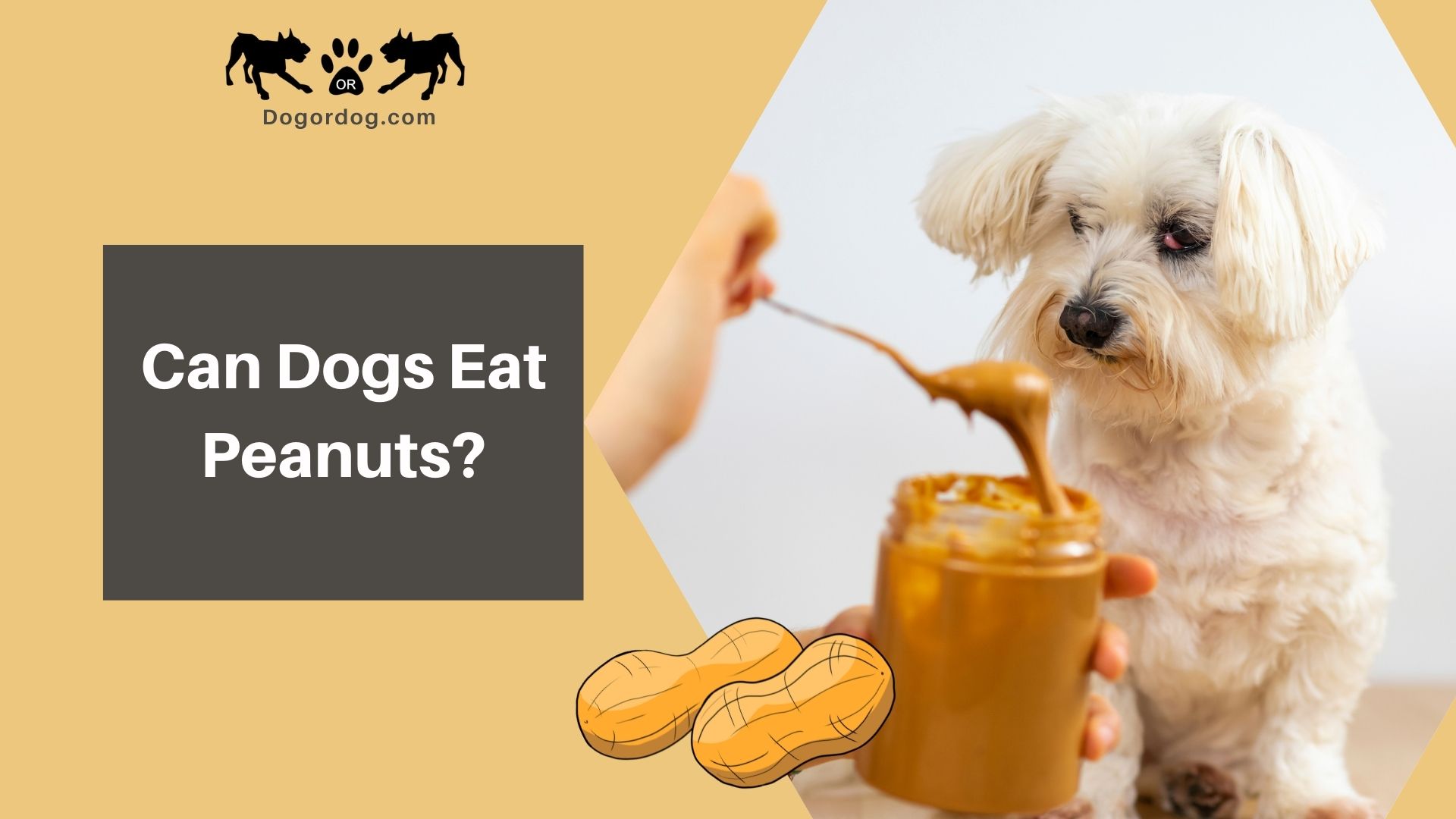
Peanuts are a common allergen in humans, so it’s entirely normal for dog parents to worry about feeding it to their four-legged friends. But if your dog is looking at you with pleading eyes as you pop another handful of roasted peanuts in your mouth, it can be tempting to give it a nut or two. But should you?
If you’re wondering whether you should feed peanuts to your dog, then you’ve come to the right place. This article will answer whether or not dogs can eat peanuts.
Can Dogs Eat Peanuts?
The answer is yes; dogs can eat peanuts. It’s entirely safe for dogs to eat peanuts, and just like in humans, some dogs may like it, and some dogs may develop an allergy.
But generally, dogs can eat peanuts, and it can be a great source of protein, Vitamin B5, Vitamin E, niacin, and healthy fats.
Though peanuts are generally safe for dogs, there are a few things to keep in mind.
When Is It Bad for Dogs to Eat Peanuts?
Eating peanuts is safe for dogs, but there are some things to keep in mind. It would help if you took the nuts out of the shell. The shell is hard and can pose a choking hazard to dogs. When the shell is ingested, it can cause intestinal blockage, which leads to vomiting, constipation, and other gastrointestinal issues.
Raw peanuts also pose a risk in dogs, so always make sure you only feed them boiled or roasted nuts. While a small number of raw peanuts may be safe, a large amount may pose a health risk.
Peanuts grow in hot and moist environments, and these are the perfect elements for fungus to produce. This particular fungus common in raw peanuts is called Aflatoxin, which can cause acute liver failure.
Symptoms usually develop within 1 or 2 days after ingestion, but sometimes, symptoms don’t show until several weeks later. The signs of Aflatoxin ingestion include lack of appetite, vomiting, lethargy, diarrhea, weakness, and yellowing of the skin, eyes, and gums.
Peanuts can also be bad for dogs when too much is eaten over a long period. Long-term effects of too much peanut consumption in dogs can cause pancreatitis, which is due to the high-fat content in the nut. These are signs to watch out for, including upset stomach, vomiting, diarrhea, dehydration, lack of appetite, and severe stomach pain.
Is Peanut Butter Safe for Dogs to Eat?
Peanut butter is safe for dogs to eat as long as there are no added flavoring or ingredients. Some sugar added is okay, and it’s excellent for administering medicine to your dog. Hide the pill inside a spoonful of peanut butter as you feed it to your dog.
You can also use peanut butter as a treat to reinforce good behavior in your dog or when you’re training it to respond to a command. Dogs love peanut butter, so it’s an excellent treat that will likely garner a positive reaction.
How to Know if Your Dog Is Allergic to Peanuts
Since peanuts are a common allergen, you must watch out for peanut allergy symptoms if you’re feeding the nut to your dog for the first time.
If your dog has ingested peanuts and it’s showing the following symptoms, it’s time you bring your pet canine to a vet emergency room:
- Coughing
- Sneezing
- Swelling
- Hives
- Difficulty Breathing
If your dog is showing these signs after ingesting peanuts, it can be a sign of anaphylaxis, which is a potentially life-threatening reaction.
How to Feed Peanuts To Your Dog
To make sure your dog is eating peanuts safely, here are some of the ways you can feed it to your dog:
- Remove the nuts from the peanut shell and ensure none is provided to your dog.
- Feed your dog dry and plain peanuts that have been roasted or boiled. Do not feed salted peanuts or other flavors. Salted peanuts can cause sodium ion toxicosis in dogs when too much is consumed. And to make sure your dog doesn’t have an adverse reaction, avoid feeding peanuts with added flavors.
- Make sure your dog is chewing the nuts thoroughly before swallowing. Even cooked peanuts can cause an intestinal blockage when swallowed without being chewed.
- When feeding peanut butter, make sure it doesn’t contain any xylitol, a common artificial sweetener that’s toxic to dogs.
- Give peanuts as an occasion or special treat and never give it every day. Remember that long-term consumption of peanuts can cause pancreatitis in dogs.
Before introducing peanuts to your dog for the first time, it’s always best to consult your vet first. As with any food introduced to your pup for the first time, asking your vet if it’s okay to give it to your dog is highly recommended.
Conclusion
It’s entirely normal for dog owners to be wary of feeding peanuts to their pets. After all, it’s a common allergen in humans, and allergic reactions can be life-treating in some cases. But generally, it’s entirely safe for dogs to eat peanuts. As long as the shell is removed, it’s only given as a treat occasionally, and it’s adequately chewed, then feeding peanuts or peanut butter to your dog is completely safe.
However, there may be cases when dogs can be allergic to peanuts, and the most important thing is that you are well aware of the signs and symptoms of an adverse reaction. Once you notice a negative response in your dog, it would be best to stop feeding it peanuts, call the vet, or head to the ER.
Related:



